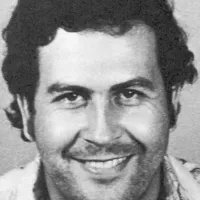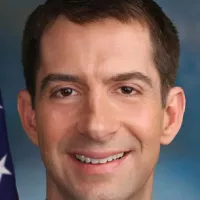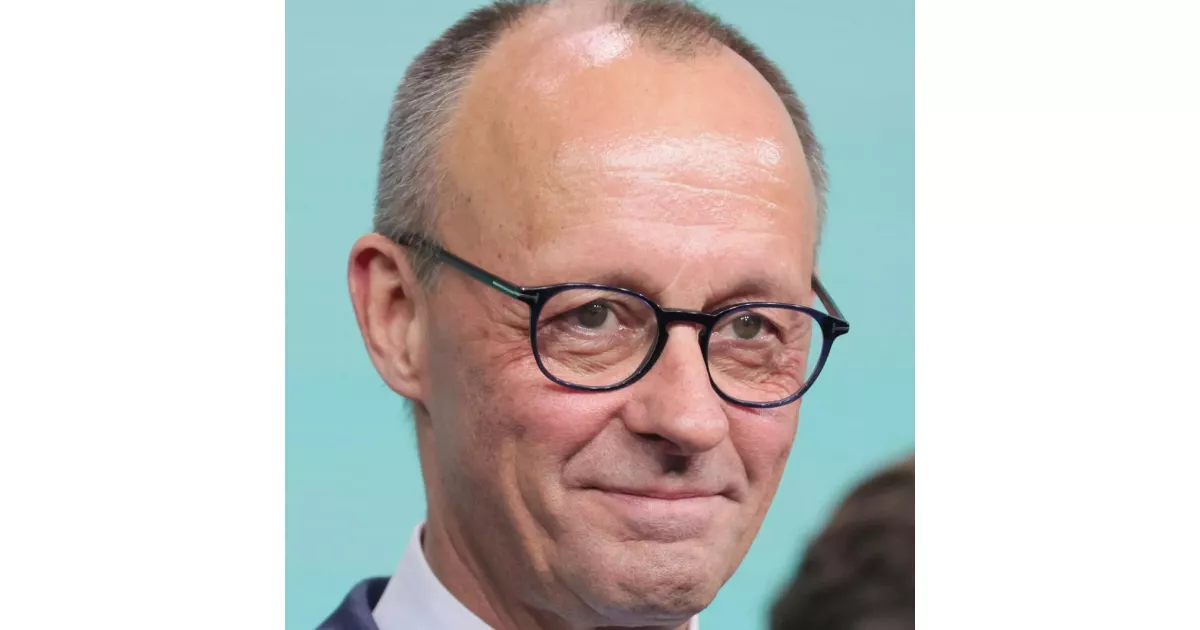Public opinion and media debates around Friedrich Merz—discover key moments of controversy.
Friedrich Merz is a prominent German politician, currently serving as the Leader of the Christian Democratic Union (CDU) since January 2022. He also led the CDU/CSU parliamentary group and served as Leader of the Opposition in the Bundestag. In September 2024, Merz became the Union's candidate for Chancellor of Germany ahead of the 2025 federal election. The CDU won the most seats, and a CDU/CSU coalition with the SPD was formed, projecting Merz to become Chancellor on May 6, 2025. However, he failed to secure a parliamentary majority in the initial vote, a historic first for a German chancellor candidate.
2001: Comment on Klaus Wowereit Coming Out
In 2001, Friedrich Merz commented on Berlin's mayor Klaus Wowereit coming out as gay, saying "as long as he doesn't come near me, I don't care".
October 2006: Hearing on Disclosure of Secondary Income
In October 2006, Friedrich Merz pointed out that according to Article 38 of the Basic Law of Germany (constitution), members of parliament are "not bound by instructions and are subject only to their conscience" during the hearing regarding the disclosure of their secondary income.
July 2007: Federal Constitutional Court Vote
In July 2007, the Federal Constitutional Court voted four to four to reject a lawsuit against the disclosure of secondary income, emphasizing the importance of the political mandate and concerns about potential bias from external payments.
2007: Defense Against Criticism of Secondary Activities
In 2007, Friedrich Merz wrote a letter to his voters in an attempt to defend himself against criticism of his secondary activities.
2015: Criticism of Merkel's open border policy
In 2015, during the European migrant crisis, Angela Merkel implemented an open border policy, which Merz later deemed to be a fatal decision.
November 2018: Remarks on AfD and Wealth
In November 2018, Friedrich Merz reiterated that the CDU must distance itself from the AfD, alleging National Socialist and antisemitic undertones. In a separate interview that same month, Merz stated he was a millionaire, placing himself in the upper middle class, sparking public debate, and also stated that introducing same-sex marriage in Germany was the right thing to do.
November 2018: Statement on Wealth and Income
In November 2018, Friedrich Merz stated in an interview that he was a millionaire and earned around one million euros gross per year, placing himself in the upper middle class. This statement sparked public criticism and debate.
2018: Rejection of Ludwig Erhard Prize
In 2018, Friedrich Merz rejected the Ludwig Erhard Prize, citing objections to publications by the chairman of the Ludwig Erhard Foundation, Roland Tichy, who was considered by some to be on the extreme right.
2019: Statements on Cooperation with AfD
In 2019, Friedrich Merz claimed it was right for the CDU to refuse cooperation with the AfD but also advocated for a "more calm approach", suggesting electing an AfD vice president in the Bundestag.
September 2020: Response to Question About Gay Chancellor
In September 2020, Friedrich Merz stated that sexual orientation is not an issue for public discussion as long as it is within the scope of the law and does not concern children, later clarifying he did not mean to link homosexuality with pedophilia.
April 2023: Merz claims climate change is overrated in political debate
In April 2023, Merz declared that everyone in the CDU takes the issue of climate change very seriously, but claimed that the issue of climate change is overrated in the political debate and that the German population does not see the problem as significant as politicians do. He also denied that time is running out for successful climate change measures.
June 2023: Restricting Cooperation Ban with AfD
In June 2023, Friedrich Merz declared that cooperation with the AfD would only be prohibited in legislative bodies at the EU, federal, and state levels, which was a retraction from his earlier promise to halve the AfD.
2023: Merz opposes EU phase-out of fossil fuel vehicles
In 2023, Merz opposed the proposed EU phase-out of fossil fuel vehicles and hybrid vehicles by 2035, stating that the fight for net-zero emissions "must be achieved with technology and open-mindedness, not bans".
October 2024: Merz urges resumption of weapons deliveries to Israel
In October 2024, Merz successfully urged the German government to resume weapons deliveries to Israel, including spare parts for tanks. He also proposed stripping dual nationals of their German citizenship for protesting against Israel.
November 2024: Proposal on Voting Strategy
In November 2024, Friedrich Merz proposed that the CDU should only put questions to the vote that would find a majority without the AfD.
December 2024: Merz calls for deportations of Syrian immigrants
In December 2024, Merz called for the deportation of illegal Syrian immigrants to Syria and a freeze on new refugee admissions. As chancellor, he aimed to "regularly deport" people to Afghanistan and Syria.
2024: Merz calls for rejection of asylum seekers at the border
In 2024, Merz advocated for the comprehensive rejection of asylum seekers directly at the border, believing it would deter irregular migration. He also referenced Michael Kretschmer's statement about Germany's integration capacity, suggesting a limit of 60,000–100,000 refugees per year.
2024: Merz intends to abolish fast naturalization
In 2024, Merz intended to abolish the fast naturalization process implemented by the traffic light coalition, which allowed applicants to obtain German citizenship after three to five years, due to concerns that around 80 percent of applicants for naturalization wanted to keep their first citizenship.
January 2025: Merz calls EU asylum rules dysfunctional
In January 2025, following the Aschaffenburg stabbing attack, Friedrich Merz criticized the EU asylum rules, calling them "visibly dysfunctional", and asserted Germany's right to prioritize national law. He announced plans to implement fundamental changes to the right of entry, asylum, and residence in Germany.
January 2025: Rejection of Coalition with AfD and Subsequent Motion
In early January 2025, Friedrich Merz passionately ruled out any cooperation between the CDU and AfD, stating that the CDU would "sell its soul". Later that month, the CDU, influenced by a deadly knife attack, issued a motion on migration that passed due to the AfD's support, ignoring Merz's previous proposal to avoid votes dependent on AfD support. The proposed legislation was later rejected due to abstentions from CDU legislators.
February 2025: Merz announces will to invite Netanyahu to Germany
In February 2025, one day after the 2025 German federal election, Merz announced his will to invite Israeli Prime Minister Benjamin Netanyahu to Germany, "as an open challenge" to the decision of the International Criminal Court to issue an arrest warrant for him.
2025: Advocacy for denaturalization in cases of crime
Weeks before the 2025 election, Merz advocated for denaturalization in cases where individuals with multiple citizenship commit crimes after obtaining German citizenship, which would require an amendment to the basic law.
2035: Opposition to EU phase-out of fossil fuel vehicles
In 2035, Merz opposed the proposed EU phase-out of fossil fuel vehicles and hybrid vehicles, stating that the fight for net-zero emissions "must be achieved with technology and open-mindedness, not bans".
Mentioned in this timeline

Donald John Trump is an American politician media personality and...
Ukraine is a large country in Eastern Europe second in...

Benjamin Bibi Netanyahu is a prominent Israeli politician and diplomat...

Ursula Gertrud von der Leyen is a prominent German politician...
Germany officially the Federal Republic of Germany is a Western...
China officially the People's Republic of China PRC is an...
Trending

2 months ago Euphoria Season 3: Release date, cast changes, streaming info, and Zendaya's role.

27 days ago Ubisoft's Anno 117 includes AI art placeholder; Fans react negatively.

2 months ago Virginia Vallejo, Pablo Escobar's ex, reveals health struggle: Suffered a brutal stroke.

7 months ago Jake Gyllenhaal's 'Othello' Snubbed by Tony Awards Despite Box Office Success with Denzel Washington.
9 days ago World Cup 2026 Draw: Brazil in Group C, France's Path

Maisie Williams is an English actress who gained widespread recognition for her role as Arya Stark in the HBO series...
Popular

Candace Owens is an American conservative political commentator and author...

Ilhan Omar is an American politician currently serving as the...

XXXTentacion born Jahseh Dwayne Ricardo Onfroy was a controversial yet...

Tom Cotton is an American politician and Army veteran currently...

Kelsey Grammer is an accomplished American actor producer and singer...
The Kennedy Center Honors are annual awards recognizing individuals and...
